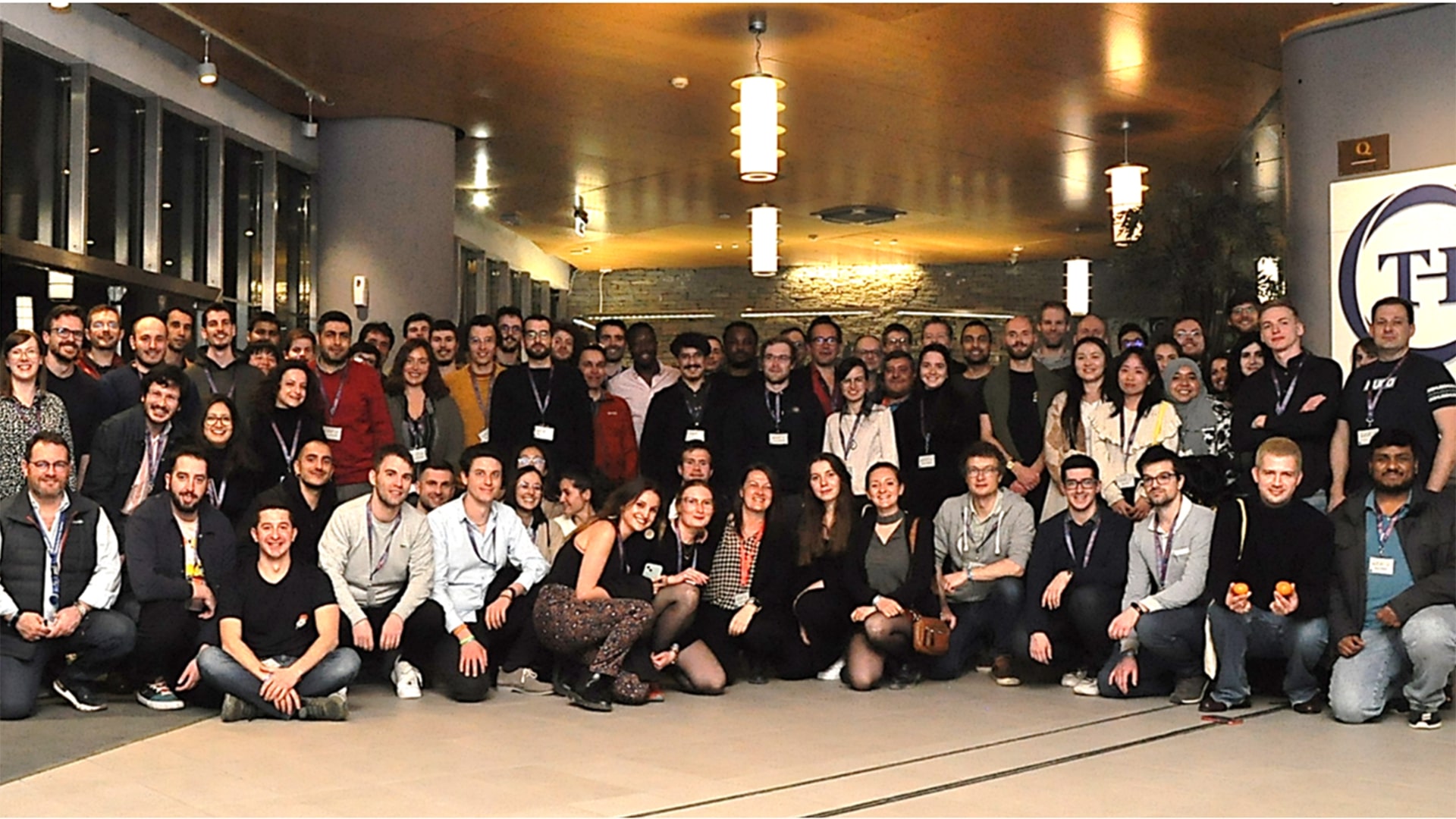The POLYSTORAGE project is designed to enhance the development of post-lithium-ion batteries through the collaboration of industry and academia, as well as to train young researchers.
The development and exploration of advanced storage technologies and materials represent a grand challenge for our society in utilising sustainable energy sources. In recent years, lithium-ion batteries have received great attention and become the most known and widespread battery system in the market. However, since they contain toxic and/or scarce metals, e.g., cobalt and nickel, as well as flammable solvents, the development of more environmentally friendly and safer battery technologies is a priority. In addition, this technology is limited when flexibility, low cost, or even higher energy density are important. The POLYSTORAGE project tackles these limitations by developing highly innovative polymer electrolytes and polymeric active materials for advanced post-lithium batteries.
Innovation for the post-lithium era
Polymers are currently applied in lithium-ion batteries, mostly as additives and binders. The next generation of energy storage technologies needs new polymer innovations to solve current technological issues. In particular, novel polymer electrolytes are urgently needed, being compatible with advanced electrode materials (e.g., sodium, potassium, calcium, magnesium, lithium-metal, sodium-air) and displaying high ionic conductivity and mechanical stability, as well as innovative redox-active polymers for the use as active materials in emerging polymer-based battery technologies (polymer redoxflow batteries (pRFBs) and hybrid organic batteries).
POLYSTORAGE is embedded in the Marie Skłodowska-Curie Innovative Training Networks initiative as a European Training Network (ETN), which seeks to foster the early career perspectives and employability of young researchers in both academic and industrial sectors. This goal is addressed by a transnational network aimed at structuring the existing initial high-quality initial research training capacity in Europe. The POLYSTORAGE consortium assembles expert research groups from Spain (IMDEA Energy, University of the Basque Country & Energy Storage Solution), France (University of Pau), Italy (Politecnico di Torino & FAAM Research Center S.R.L.), Slovenia (National Institute of Chemistry), Sweden (Uppsala University), Finland (Aalto University), Belgium (Université catholique de Louvain), and Germany (Karlsruhe Institute of Technology & University of Jena), as well as an associated member from Australia (Deakin University).
The multidisciplinary aspect of POLYSTORAGE is reflected in the high number of research areas within the programme, including polymer chemistry, ionic liquids, supramolecular self-assembly, polymer physics, advanced characterisation, electrochemistry, energy storage technologies, and engineering. The 16 early-stage researchers (ESRs), eight male and eight female PhD students from Asia, North America, Africa, and Europe, benefit from a comprehensive training programme featuring inter-sectorial and multidisciplinary technical courses on data management, scientific writing and international secondments with a strong focus on industrial experience.
Improving collaboration between academia and industry
Collaboration between academia and industry is crucial for the development of a competitive and resilient economy. The POLYSTORAGE project stands at the forefront of this synergy. By integrating advanced academic research with practical industry experience, the POLYSTORAGE network is training the next generation of leading researchers at the junction of research and industry for energy storage technologies.

The essence of the POLYSTORAGE project lies in its unique approach to combining research and training. As an ETN, it focuses on creating a structured and comprehensive training environment for the ESRs. Their primary scope is their work as PhD students with the aim of a doctorate. Hosted at their beneficiary’s research institution, they contribute to research on innovative electricity storage technologies. Through work on their individual projects under the guidance of world-renowned professors and scientists, they become specialists in fields including polymer chemistry, ionic liquids, supramolecular self-assembly, polymer physics, advanced characterisation, electrochemistry, and engineering. This environment is enriched by the collaboration with and expertise of leading industrial partners.
The ESR’s training periods include at least two secondments at international partners of the POLYSTORAGE consortium. These secondments are temporary placements at other beneficiaries or partner organisations. During their stay at affiliated research institutes, they benefit from the vast variety of their research focus and expertise. To complement their academic training, all ESRs should also participate in secondments with industrial partners. The planned industrial secondments include international businesses from six European countries, as well as Japan and Australia, such as E22 Energy Storage Solutions, Chemspeed, Comau, Netzsch, Toyota Motors Europe, Scania, TCI Japan, and CALIX.
Learning experiences
During their time with companies, students are exposed to the practical aspects of bringing scientific innovations to market. They gain firsthand experience in product development, testing, and commercialisation processes, providing valuable insights into the industry’s business and regulatory aspects. These secondments are a critical component of the training network, ensuring that students can bridge the gap between theoretical research and real-world application.
Furthermore, the ESRs benefit from a comprehensive training programme featuring inter-sectorial and multidisciplinary courses, such as workshops and multi-day training events. Here, not only scientific working methods but also important soft skills for communication and leadership are taught. In regular progress meetings, the PhD students also exchange and discuss their results and experiences and benefit from the joint advice of the project’s PIs. In addition, two one-week schools were organised by POLYSTORAGE to promote and connect with other PhDs beyond the core project. As a special networking event, one of the workshops was organised as a satellite event of the Organic Battery Days 2023 conference in San Sebastian, Spain, the yearly reference event for organic battery experts, and gave the ESRs an excellent opportunity for networking within their scientific community beyond the edge of the project consortium.

The comprehensive training programme is complemented by mentorship from respected professors and industry representatives, who bring years of experience and insight into the challenges of translating science into real-world applications. This not only provides an additional platform for knowledge exchange, but these relationships also lead to the development of professional networks, which can be instrumental in the ESRs’ future careers.
The collaboration between academia and industry ensures that the PhD students are not only immersed in cutting-edge research but also understand the real-world applications and challenges of their work. This dual exposure is designed to produce well-rounded scientists who are prepared to meet the demands of both research institutions and industry. By merging the strengths of academic research and industrial application, the POLYSTORAGE project is not only advancing the field of energy storage but also scientific training itself. Through its blend of academic depth and industrial practicality, it is shaping a future where advanced energy storage technologies can thrive and contribute to a more sustainable world.
Improving access to information
To ensure that its advancements reach a wide audience, the project is also active in outreach and dissemination. As such, POLYSTORAGE became a member of the international FLORES network, which aims to advance the field of redox-flow battery technologies. Further, several partner institutions participated in the European Researchers’ Night, engaging with classrooms and offering workshops for children and other non-scientific audiences. The POLYSTORAGE European winter school, originally organised as a training event for the ESRs in March 2023 by POLITO, was also made open for interested students from outside the network. Finally, the success of the project can also be seen in scientific publications. So far, POLYSTORAGE has achieved significant academic output in peer-reviewed journals, most of which are available via open access. A list of publications, as well as insights and the latest updates, are available at: https://www.polystorage-etn.eu.

Since the start in late 2019, the POLYSTORAGE consortium has experienced challenges due to the COVID pandemic and leaving industrial beneficiaries, yet all projects and ESRs continued. Among other aspects, the broad activities in education, training, and research on ESRs illustrate the successful outcome of POLYSTORAGE ETN.
 This project has received funding from the European Union’s Horizon 2020 research and innovation programme under the Marie Sklodowska-Curie grant agreement No 860403.
This project has received funding from the European Union’s Horizon 2020 research and innovation programme under the Marie Sklodowska-Curie grant agreement No 860403.
Please note, this article will also appear in the 19th edition of our quarterly publication.









